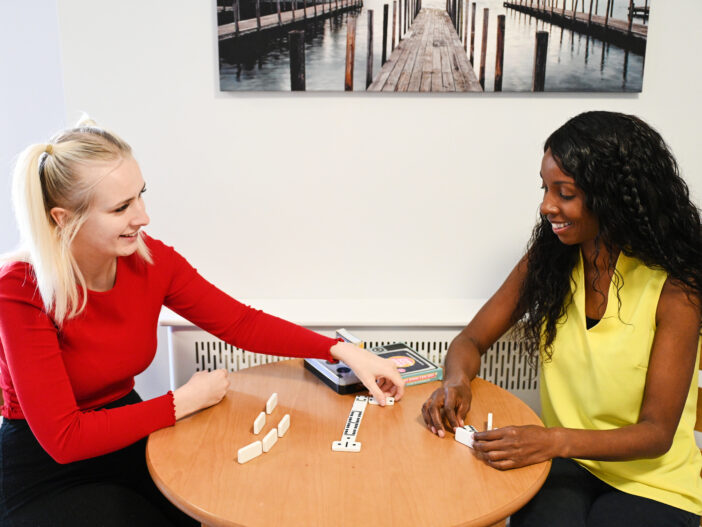Working towards a goal: functional rehabilitation
Victoria Richardson, Business Development Manager, talked to us about supporting people with brain injuries to achieve their goals using functional rehabilitation.
Supporting people to achieve their goals
Life after a brain injury is different for everyone and our teams support each resident through every step of their individual rehabilitation journey.
We help the people we support take control of their lives after a brain injury and regain their independence. We work with specialists to give unique support to help meet their needs, these include:
- Therapy Co-ordinators
- Neuro-therapists
- Occupational Therapists
- Speech & Language Therapists
- Cognitive Behaviour Therapists
- Counsellors
- Art, Drama and Music Therapists
Just like everyone else, the people we support have goals they want to achieve and our staff offer endless support to help them get to where they want to be.
For example, they may want to develop money management skills. To achieve this goal, support workers plan daily tasks with them to work towards improving or obtaining this goal. We could use a task such as cooking a meal. Steps could include:
- Decide what to cook
- Make a list of items
- Choose the items in the store
- Pay for them
- Make sure they get a receipt
- Check they have the right change
This is known as functional rehabilitation. Victoria explained, “Before we even start cooking, we did a multitude of other things. We’ve taught that person about sequencing and structure in their day and forward planning. That’s how I would describe functional rehab.”
How we set goals for people with brain injuries
We asked Victoria how we set goals for people with brain injuries, she explained, “We use the Goal Attainment Scaling (GAS) system. It could be an occupational therapy goal, a functional task, or a physio goal. Whatever that goal is, the therapy coordinator would support that person to devise a plan and work with them on attaining that goal.”
Always learning
Victoria told us she loves her job, she said, “I love the challenge of the individual and that’s what drew me to stay in this field. I learn something new all the time.”
For anyone considering a care in supporting people with brain injuries, she said, “Being a support worker is very different from being a care worker. Supporting people is about enabling people to do as much as they possibly can for themselves. Be prepared to open your mind and learn new things.”

 News & events
News & events 

